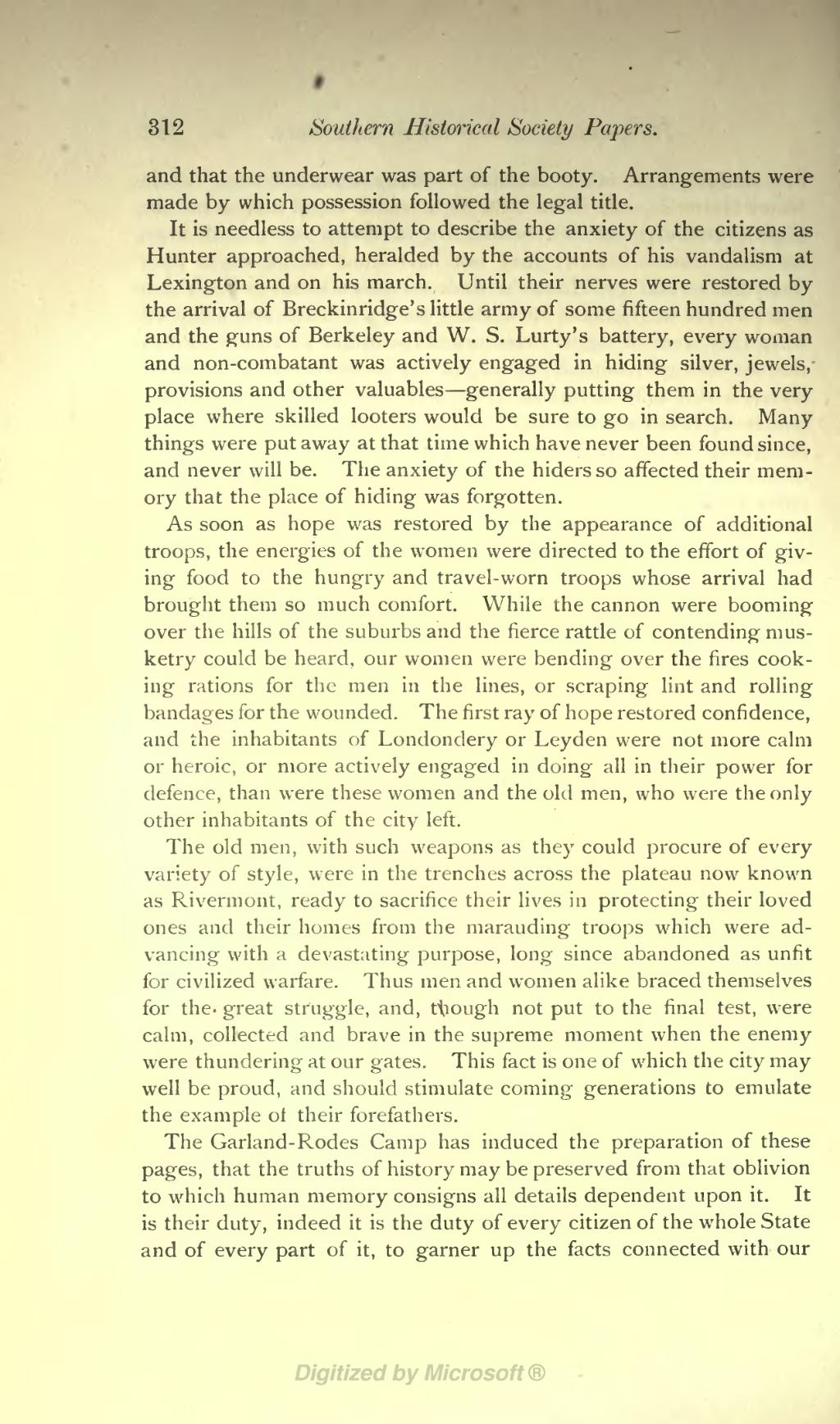312 Southern Historical Society Papers.
and that the underwear was part of the booty. Arrangements were made by which possession followed the legal title.
It is needless to attempt to describe the anxiety of the citizens as Hunter approached, heralded by the accounts of his vandalism at Lexington and on his march. Until their nerves were restored by the arrival of Breckinridge's little army of some fifteen hundred men and the guns of Berkeley and W. S. Lurty's battery, every woman and non-combatant was actively engaged in hiding silver, jewels, provisions and other valuables generally putting them in the very place where skilled looters would be sure to go in search. Many things were put away at that time which have never been found since, and never will be. The anxiety of the hidersso affected their mem- ory that the place of hiding was forgotten.
As soon as hope was restored by the appearance of additional troops, the energies of the women were directed to the effort of giv- ing food to the hungry and travel-worn troops whose arrival had brought them so much comfort. While the cannon were booming over the hills of the suburbs and the fierce rattle of contending mus- ketry could be heard, our women were bending over the fires cook- ing rations for the men in the lines, or scraping lint and rolling bandages for the wounded. The first ray of hope restored confidence, and the inhabitants of Londondery or Leyden were not more calm or heroic, or more actively engaged in doing all in their power for defence, than were these women and the old men, who were the only other inhabitants of the city left.
The old men, with such weapons as they could procure of every variety of style, were in the trenches across the plateau now known as Rivermont, ready to sacrifice their lives in protecting their loved ones and their homes from the marauding troops which were ad- vancing with a devastating purpose, long since abandoned as unfit for civilized warfare. Thus men and women alike braced themselves for the- great struggle, and, though not put to the final test, were calm, collected and brave in the supreme moment when the enemy were thundering at our gates. This fact is one of which the city may well be proud, and should stimulate coming generations to emulate the example of their forefathers.
The Garland- Rodes Camp has induced the preparation of these pages, that the truths of history may be preserved from that oblivion to which human memory consigns all details dependent upon it. It is their duty, indeed it is the duty of every citizen of the whole State and of every part of it, to garner up the facts connected with our
